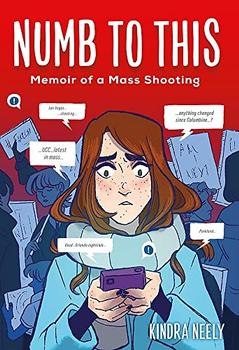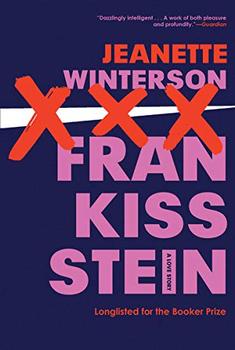Summary | Excerpt | Reviews | Beyond the book | Read-Alikes | Genres & Themes | Author Bio

A thoughtful, poignant novel that explores the creation of Artificial Intelligence - illuminating the very human need for communication, connection, and understanding.
In a narrative that spans geography and time, from the Atlantic Ocean in the seventeenth century, to a correctional institute in Texas in the near future, and told from the perspectives of five very different characters, Speak considers what it means to be human, and what it means to be less than fully alive.
A young Puritan woman travels to the New World with her unwanted new husband. Alan Turing, the renowned mathematician and code breaker, writes letters to his best friend's mother. A Jewish refugee and professor of computer science struggles to reconnect with his increasingly detached wife. An isolated and traumatized young girl exchanges messages with an intelligent software program. A former Silicon Valley Wunderkind is imprisoned for creating illegal lifelike dolls.
Each of these characters is attempting to communicate across gaps - to estranged spouses, lost friends, future readers, or a computer program that may or may not understand them. In dazzling and electrifying prose, Louisa Hall explores how the chasm between computer and human - shrinking rapidly with today's technological advances—echoes the gaps that exist between ordinary people. Though each speaks from a distinct place and moment in time, all five characters share the need to express themselves while simultaneously wondering if they will ever be heard, or understood.
There are strong elements linking all the characters. They have each lost someone important, and to some extent the idea of artificial intelligence – creating a perfect companion – is an attempt to make up for an irrecoverable loss. This cacophony of voices, some monologues and some dialogues, is Hall's collective comment on the difficulty of sustaining intimate communication. Each character, even the robot, realizes language is precious...continued
Full Review
(748 words)
This review is available to non-members for a limited time. For full access,
become a member today.
(Reviewed by Rebecca Foster).
The Turing test judges a machine's ability to exhibit human-like intelligence, as envisioned by Alan Turing (1912–1954), one of the characters in Louisa Hall's novel Speak. The test is conducted as a written conversation between a human and a machine, externally monitored by a human observer. The conversational partners exchange text messages across a computer network, just like Gaby and MARY3 do in Speak. Since there is no oral component, the human competitor does not have the advantage of a more authentic voice. If the human mediator cannot tell the difference between the responses given by the two participants, the machine is said to pass the test. Turing believed that, within five minutes of conversation, a machine would ...
This "beyond the book" feature is available to non-members for a limited time. Join today for full access.

If you liked Speak, try these:

by Kindra Neely
Published 2022
This searing graphic memoir portrays the impact of gun violence through a fresh lens with urgency, humanity, and a very personal hope.

by Jeanette Winterson
Published 2020
What will happen when homo sapiens is no longer the smartest being on the planet? In fiercely intelligent prose, Jeanette Winterson shows us how much closer we are to that future than we realize. Funny and furious, bold and clear-sighted, Frankissstein is a love story about life itself.